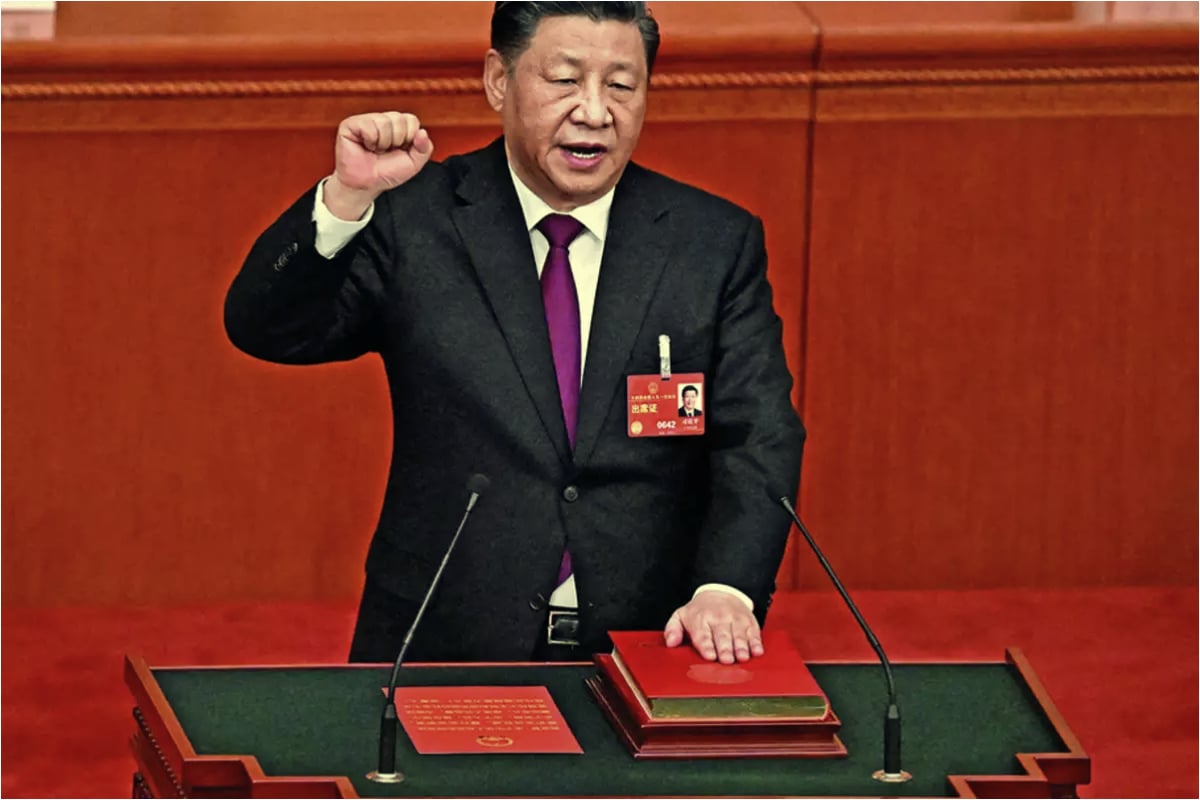Xi Jinping may meet Putin in Moscow next week
The visit is being planned at a time when China has offered...

Xi Jinping vows to make China’s military a ‘great wall of steel’
Xi Jinping vowed to boost national security and grow the military into a “great wall of steel,” in the first speech of his precedent-breaking third term as president.
Xi stressed the importance of thoroughly modernizing the military and national security in his speech at the conclusion of the annual session of China’s rubber-stamp parliament.
“(We must) build the People’s Liberation Army into a great wall of steel that effectively safeguards national sovereignty, security, and development interests,” Xi told the nearly 3,000 delegates of the National People’s Congress (NPC).
Xi, 69, became the longest-serving head of state of Communist China since its creation in 1949 when the NPC unanimously backed him for a second term as president of China for another five years on Friday.
Xi thanked the delegates for reappointing him at the beginning of his remarks on Monday.
“This is my third time assuming the lofty position as president. The trust of the people is the biggest driving force for me to move forward, and also a heavy responsibility on my shoulders,” he said.
Xi adopted a nationalist tone in his address, as he had in many of his previous ones, by highlighting the hardships China had to endure due to “bullying foreign powers” in the modern age and the ways in which the Communist Party has helped China “wash clean the national humiliation.”
“The Chinese people have become the masters of their own destiny,” he said. “The great rejuvenation of the Chinese nation has entered an irreversible historical process.”
According to Xi the “essence” of that rejuvenation is “national unification,” namely “reunifying” Taiwan with mainland China.
Despite never having had control over Taiwan, the Chinese Communist Party insists that it is a part of its territory and won’t rule out using force against it.
China has increased its political, military, and economic pressure on the island democracy under Xi.
Fears that Xi would consider doing something similar in the years to come have grown as a result of Russia’s invasion of Ukraine, which Beijing has not denounced.
“We must… actively promote peaceful development of cross-strait relations, firmly oppose interference of external forces and Taiwan’s separatist activities, and resolutely advance the process of national reunification,” Xi said to a loud burst of applause in the Great Hall of the People.
Also, Xi urged China to better integrate security and development.
“Security is the foundation for development, stability is the prerequisite for prosperity,” he said.
Throughout the course of his first ten years in office, Xi has made significant changes to the Chinese military in order to transform it into a modern combat force and expand its fleet to become the biggest in the world.
With escalating geopolitical tensions and a regional arms race, China will increase its annual military spending by 7.2% this year, to around 1.55 trillion yuan ($224 billion).
He is now China’s most forceful and powerful leader in a generation and has strengthened his hold over both the military and civilian branches of the government.
The focus on bolstering security and the military comes at a time when tensions between China and the United States are at an all-time high in a variety of areas, including trade, technology, and geopolitics, particularly the future of Taiwan.
In unusually blunt remarks made last week, Xi charged that the US was encouraging Western nations to “contain and oppress” China and present it with “unprecedented harsh challenges.”
Qin Gang, Xi’s new foreign minister, warned that “conflict and confrontation” between the two heavyweights is inevitable if the US doesn’t “hit the brakes.”
Catch all the Business News, Breaking News Event and Latest News Updates on The BOL News
Download The BOL News App to get the Daily News Update & Live News.